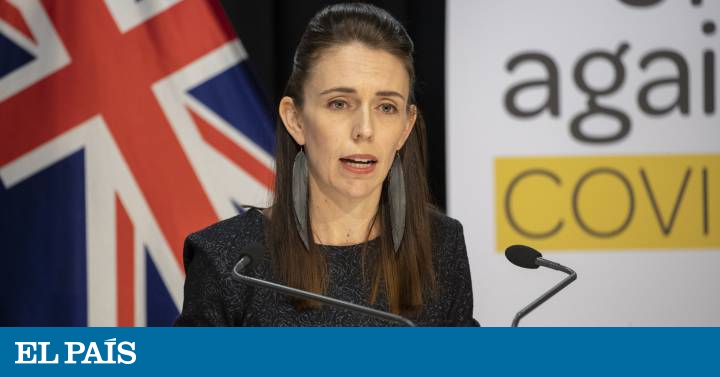Managing major crises tests the leadership of governments around the world. And in the case of the coronavirus even more because the extent of its impact is not known for sure. There are too many unknowns to clear before a roadmap is clear to be able to communicate to the public what are the next steps to take once the isolation is over. Meanwhile, the social bewilderment of the long confinement continues to grow, causing widespread discouragement, especially among those who find it hardest to bear the situation. And the feeling of disconnection between the political leaders who manage the crisis and the society that suffers it is also growing. In these circumstances, the communication strategy used by those responsible to explain the evolution of the situation to citizens is crucial.
In the soundtrack of the management of the coronavirus crisis, the dominant male language that is so common when it comes to the political sphere sounds at full volume. The metaphors that are often heard about the spread of the pandemic refer to war, offensive, combat or resistance in the fight against the coronavirus. Allusions that remind us of spaces occupied and starred mostly by men where gender stereotypes are perpetuated.
Gender stereotypes are nothing more than preconceived ideas that we consciously or unconsciously have about the most typical characteristics, behaviors and roles that men and women present. These preconceived notions portray women as understanding, empathetic, conciliatory, while men emerge competitive, challenging, self-confident. Apparently, male stereotypes outperform men on the political front, especially when it comes to managing a serious crisis. Managing major crises requires determination, not being afraid of conflict and making risky decisions, and, in exceptional circumstances, having a heavy hand. And to that expeditious figure who decides under pressure we tend to put a face or a male name.
However, the devastating consequences of this crisis suggest that for its management not only the audacity or the speeches that allude to the offensive against the virus serve. Although little is said about them, some leaders from various countries of the world have made forceful decisions, but they have distanced themselves from that belligerent speech. The President of Taiwan, Tsai Ing-wen, was not lacking in courage and determination; the Prime Minister of New Zealand, Jacinda Ardern, or the German Chancellor, Angela Merkel, to implement immediate measures in the face of the appearance of the first cases of coronavirus in their respective countries. Without doubts and immediately. With crystal clear statements to the media from the outset about the seriousness of the crisis and the need to implement drastic measures. And without shaking their hands when adopting provisions against those who will not abide by them. They are also the first to begin announcing the relaxation of the containment measures in their respective countries, transmitting a shy message of hope to the population.
The leaders surprise with innovative political decisions, with solidarity and empathetic gestures, such as the Prime Minister of Iceland, Katrín Jakobsdóttir, who decided to test all her citizens when in many European countries the tests are still used with droppers. Or the Norwegian Prime Minister, Erna Solberg, when she came out on television to speak directly to children in her country, organizing a press conference in which the presence of adults was not allowed. The recent decision by all components of Jacinda Ardern's New Zealand government to lower their wages by 20% in solidarity with the current crisis is another relevant example. These are gestures that in the midst of the coronavirus storm have the potential to generate a feeling of consideration and closeness to citizens.
If there is something that this health crisis shows us on a daily basis, it is that our production system is fragile, that social and health problems have economic relevance, that social inequalities have grown too much in recent decades, that we have to take care of our planet and citizens more vulnerable. That well-being is not limited to simple consumption capacity, but also has an important psychological dimension. It's hard to glimpse the utility of raising the volume to that aggressive coronavirus war soundtrack with as many social problems to solve as political leaders around the world today have.
Instead, I am convinced by the leadership style of these women. A style that connects them to a greater extent with the citizenship for which they govern. And, most importantly, your decisions appear to be more effective. And if not, check the evidence from the European Center for Disease Prevention and Control (https://www.ecdc.europa.eu/en/geographical-distribution-2019-ncov-cases). The numbers of infections and deaths in countries where women rule speak for themselves. Is it just a coincidence?
Marta Fraile is a senior scientist at the CSIC-IPP.
You can follow EL PAÍS Opinion on Facebook, Twitter or subscribe here to the Newsletter.



/cloudfront-eu-central-1.images.arcpublishing.com/prisa/4PKPLHZOXBG5TEAQ6JNDTUJXBA.jpg)





